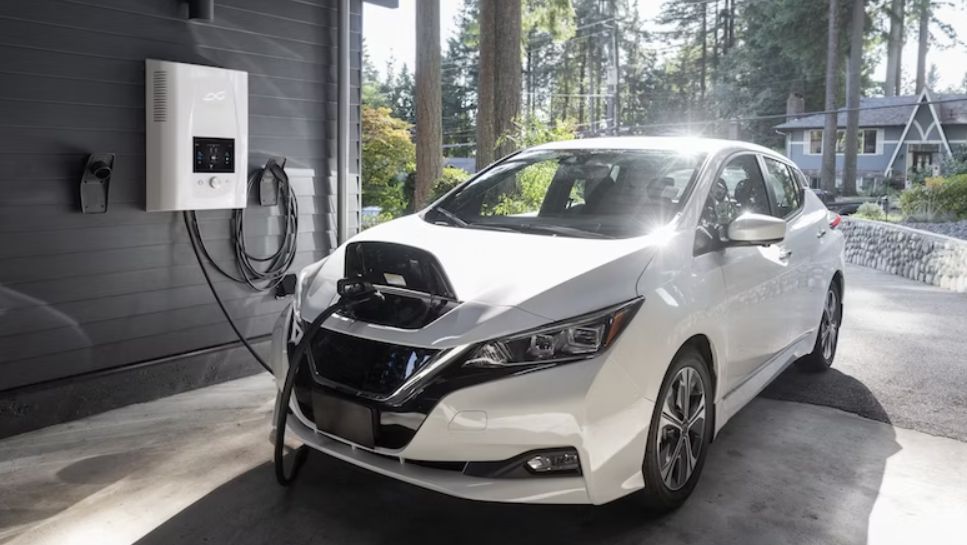A question we all ask ourselves: is the electric car really non-polluting as the media claims?
The consequences of global warming are catastrophic for our planet. The effects are alarming even in some parts of the world. The automobile is a major contributor to greenhouse gas emissions, accounting for about 30% of emissions worldwide. In this case, it is necessary to act quickly and decisively to reduce its impact on the environment, and therefore on the electric vehicle.
We should therefore change our habits and the way we travel, by switching to alternative modes of transportation. This includes cycling, bus, train, or carpooling. The purpose of electric vehicles would also be to decarbonize the automobile sector on a large scale. But are they really non-polluting and CO2-free as politicians and the media claim?
to know if the electric car is non-polluting continue reading the next pages.
A promising future for the electric car?
Many governments and public agencies place great importance on reducing the effects of climate change. The European Parliament has been presented with a measure that would outlaw the sale of new internal combustion engine automobiles beginning in 2035. a symbolic move that compels automakers to blithely migrate to all-electric cars.
Vehicles emit various pollutants such as nitrogen oxides (NOx) and fine particles such as PM10 and PM2.5. Unlike gasoline or diesel cars, electric models emit virtually no pollutants because they do not have an exhaust system.
An ecological bonus of up to 5,000 euros is available to those who opt for a zero-emission model.
Their environmental impact is measured at 2 or even 3 times lower than that of a thermal equivalent. As a result, the French government recognizes EVs as the ultimate weapon against global warming. An ecological bonus of up to 5,000 euros is available to those who opt for a zero-emission model.
Electric cars mark the beginning of a new era in the automotive industry. The majority of manufacturers are embarking on electrification, especially since the Euro zones will only host EVs in 2035.
Is the electric car really ecological?
To promote these EVs, terms such as “green car”, “zero carbon” or “clean car” are often used. It is wrong to say that there is such a thing as mobility without environmental impact and electric vehicles do not ignore this law of physics. To evaluate their ecological footprint, several factors come into play, including their entire life cycle.
From raw material extraction to manufacturing
Although these cars are non-polluting in use, their manufacture generates more pollution than their thermal counterparts. This translates into a carbon debt of between five and fifteen tons of CO2 equivalent, depending on the model. And they carry this commitment even before they drive a single kilometer. According to ADEME reports, this footprint is two to three times greater than that of a combustion engine model. In this context, the benefits of EVs are felt in use.
its carbon footprint will not be amortized until the car has been driven around 30 to 40 000 km.
Moreover, the battery that equips these EVs would also be the most polluting in addition to being energy-consuming, especially when it is oversized. Its production alone has almost the same impact as the production of the rest of the vehicles combined. And its carbon footprint will not be amortized until the car has been driven around 30 to 40,000 km.
The production of these energy accumulators requires the extraction of minerals such as lithium, cobalt, and nickel. As these minerals are not found in thermal cars, they are usually extracted in developing countries. As in the Democratic Republic of Congo, Chile, and Poland, environmental damage is of great importance. To mitigate these effects, the EV industry is constantly investigating new technologies to find more sustainable and environmentally friendly solutions.
From use to the end of its life cycle
Electric vehicle charging practices also need to be reviewed. In some regions, the electricity needed to power these EVs has environmentalists panicked. Energy production comes from fossil fuels or coal, causing significant damage to the environment.
Electric cars emit much less CO2 than traditional vehicles if the electricity production is decarbonized. That is, if the energy is nuclear or renewable, as in France or Quebec.
The government welcomes the fact that “80% of lithium battery components are already recyclable”. However, the actual percentage of recycled batteries in the world remains at 5%. The majority of lead-acid batteries used in thermal models are recycled.
Air and noise pollution from an electric car
The air and noise pollution caused by autos is still not completely eliminated by electric vehicles. In order to lower the emission of tiny particles into the environment, the tailpipe has been removed from the design.
The primary causes of air pollution continue to be brake wear and small particles that are discharged into the road. The rubbing of tires on the pavement contributes to noise pollution.
Despite being advertised as “100% green cars,” EVs have an environmental effect that depends on a variety of factors. And depending on the circumstances, this might vary greatly. However, electric mobility is still a bright future possibility. We should probably start planning right away!





